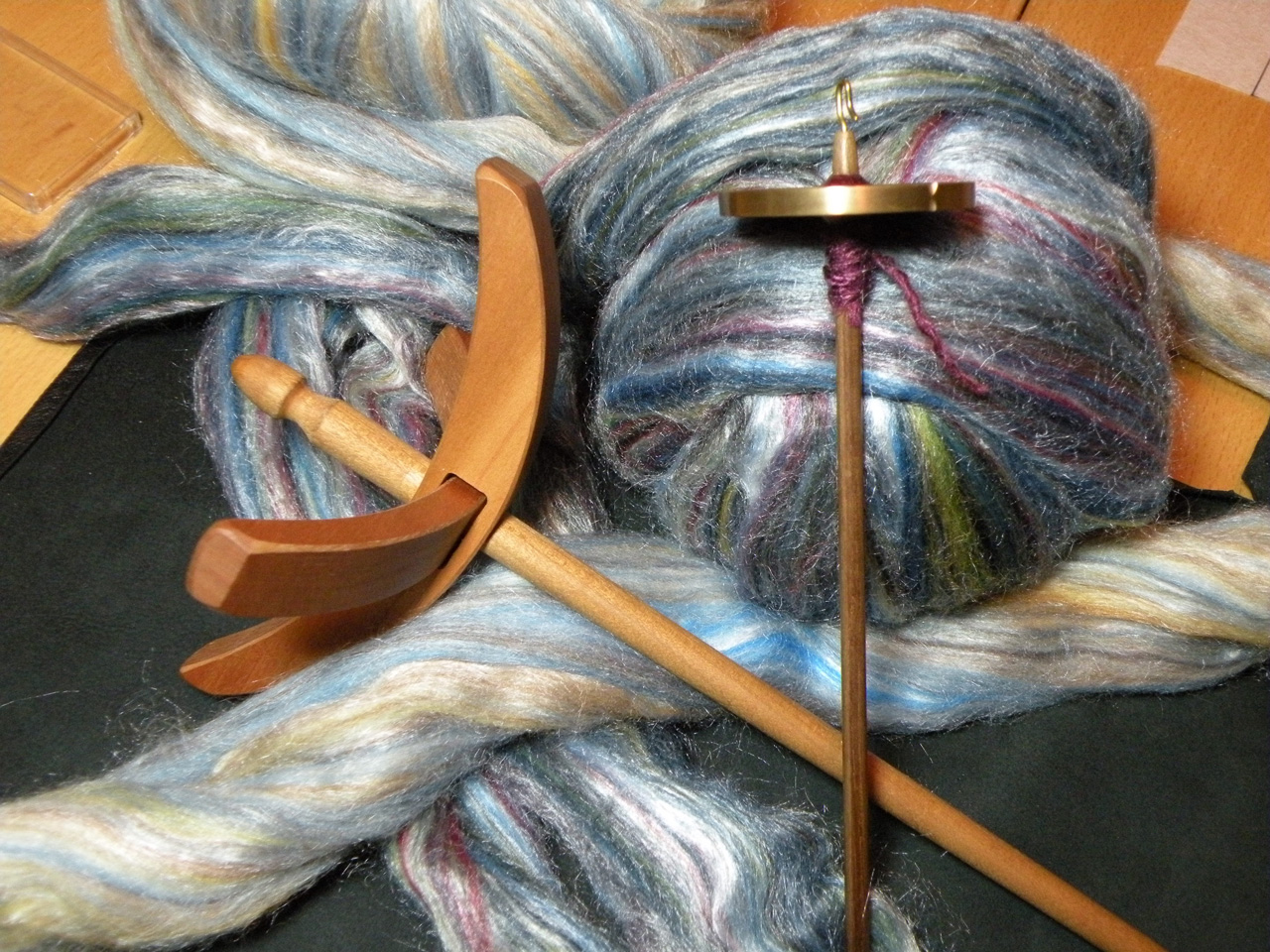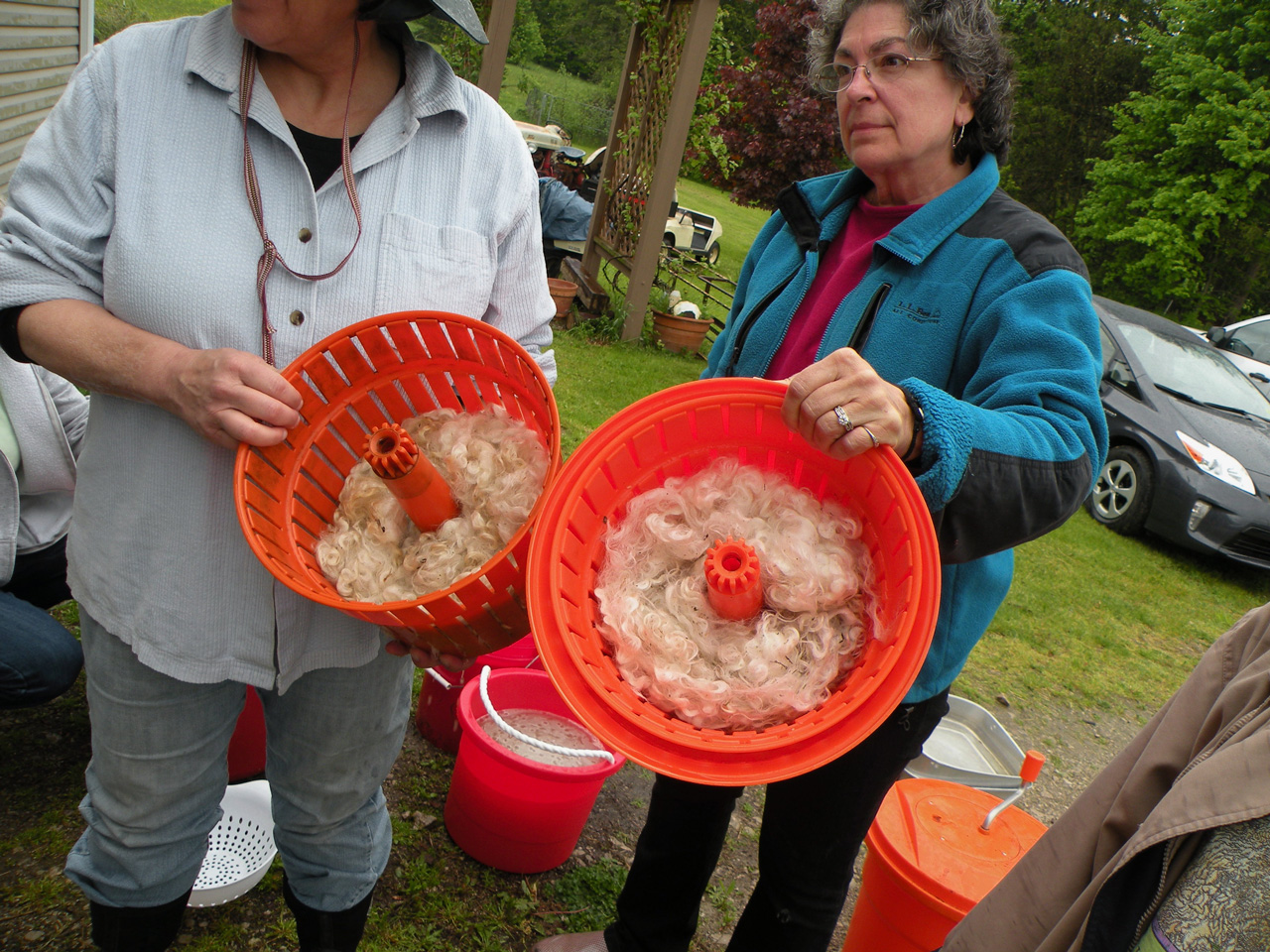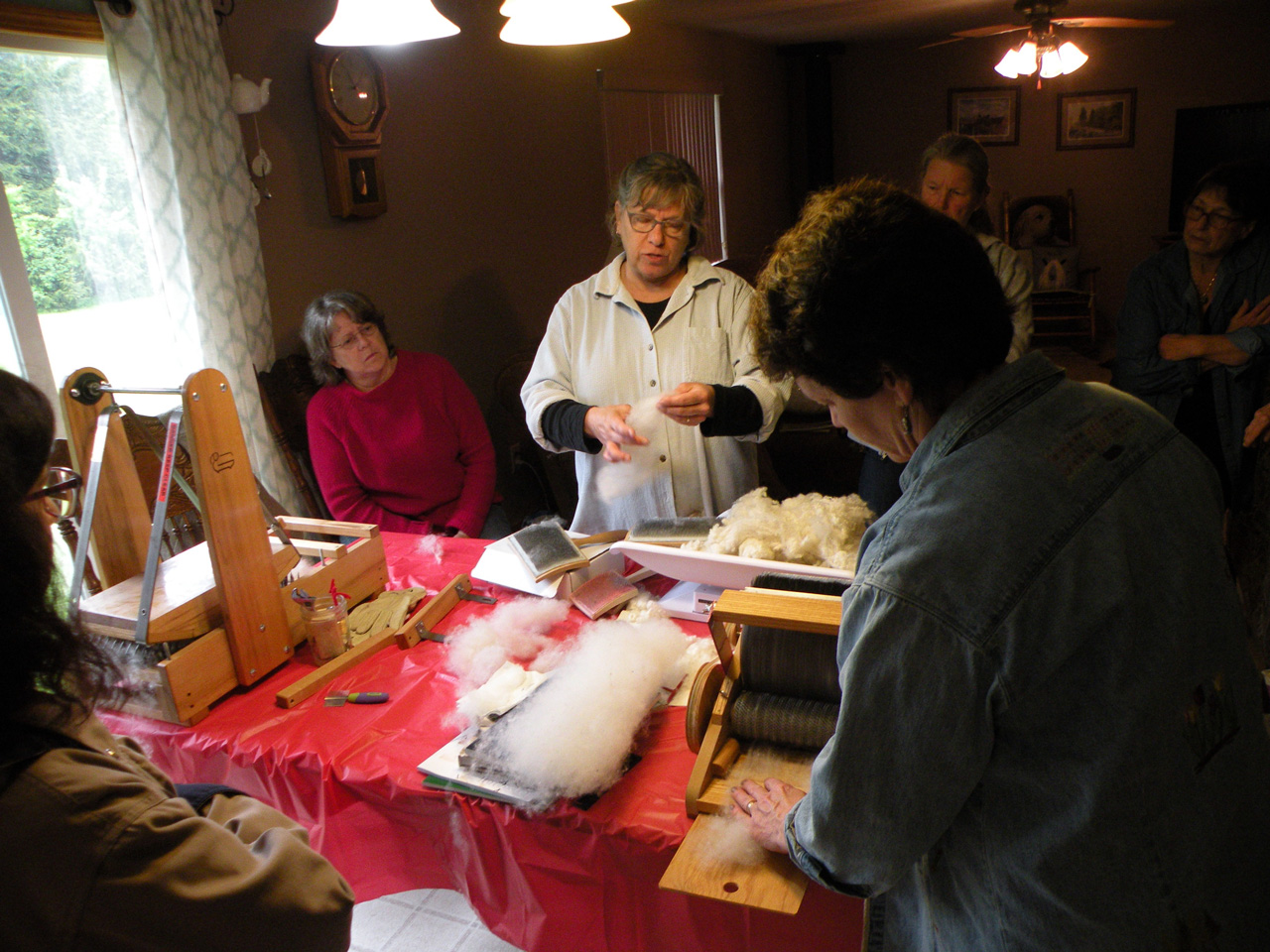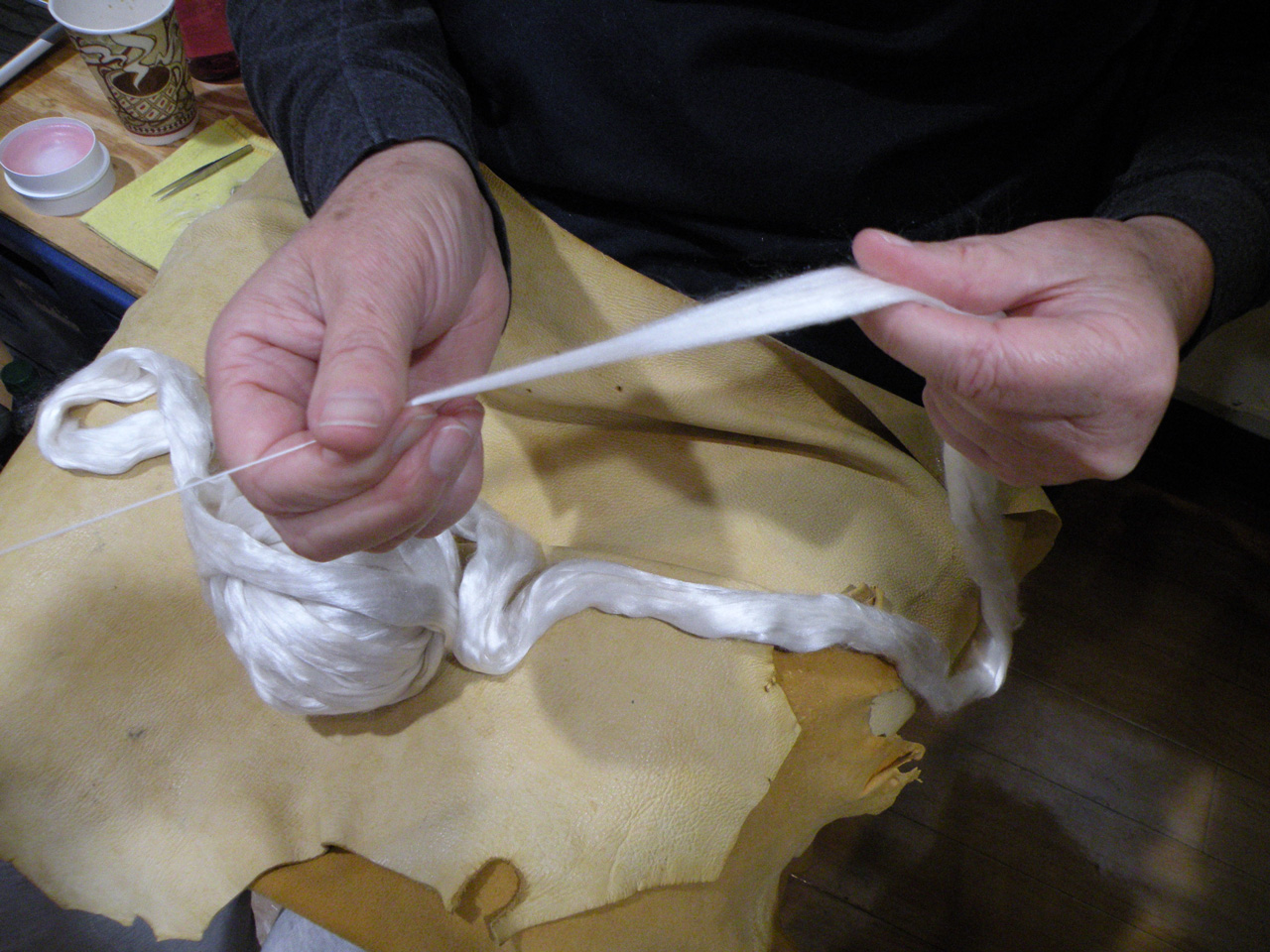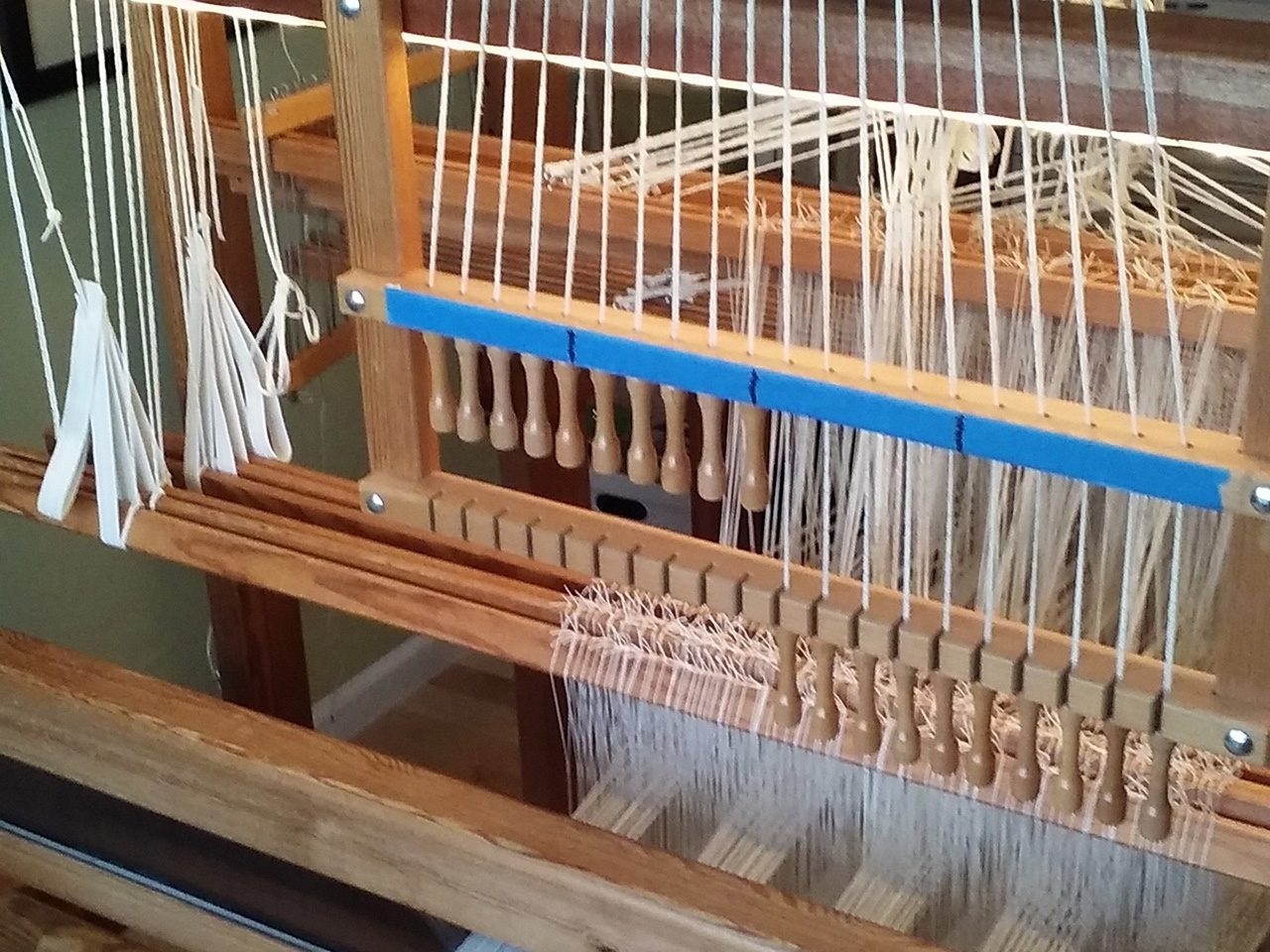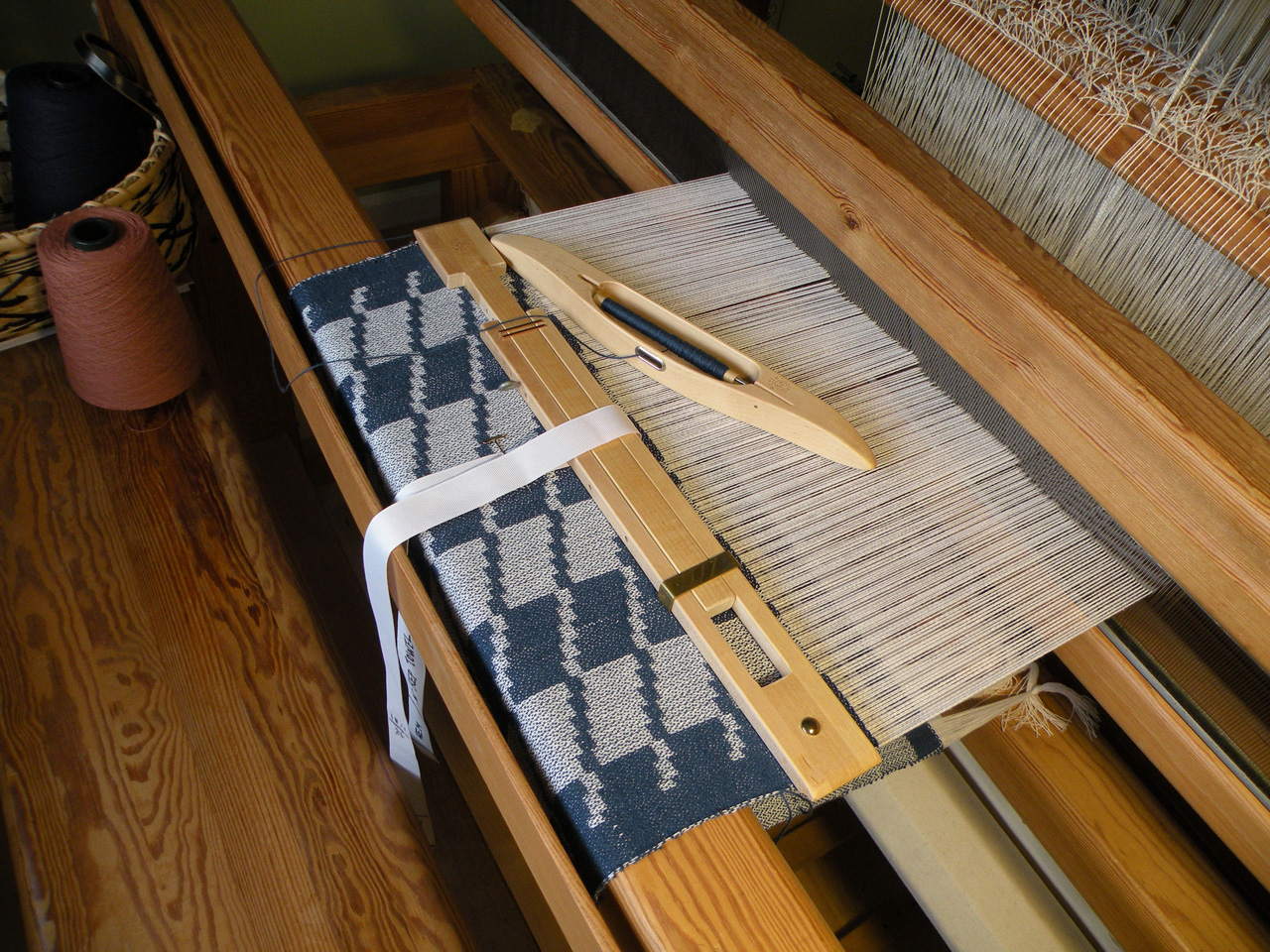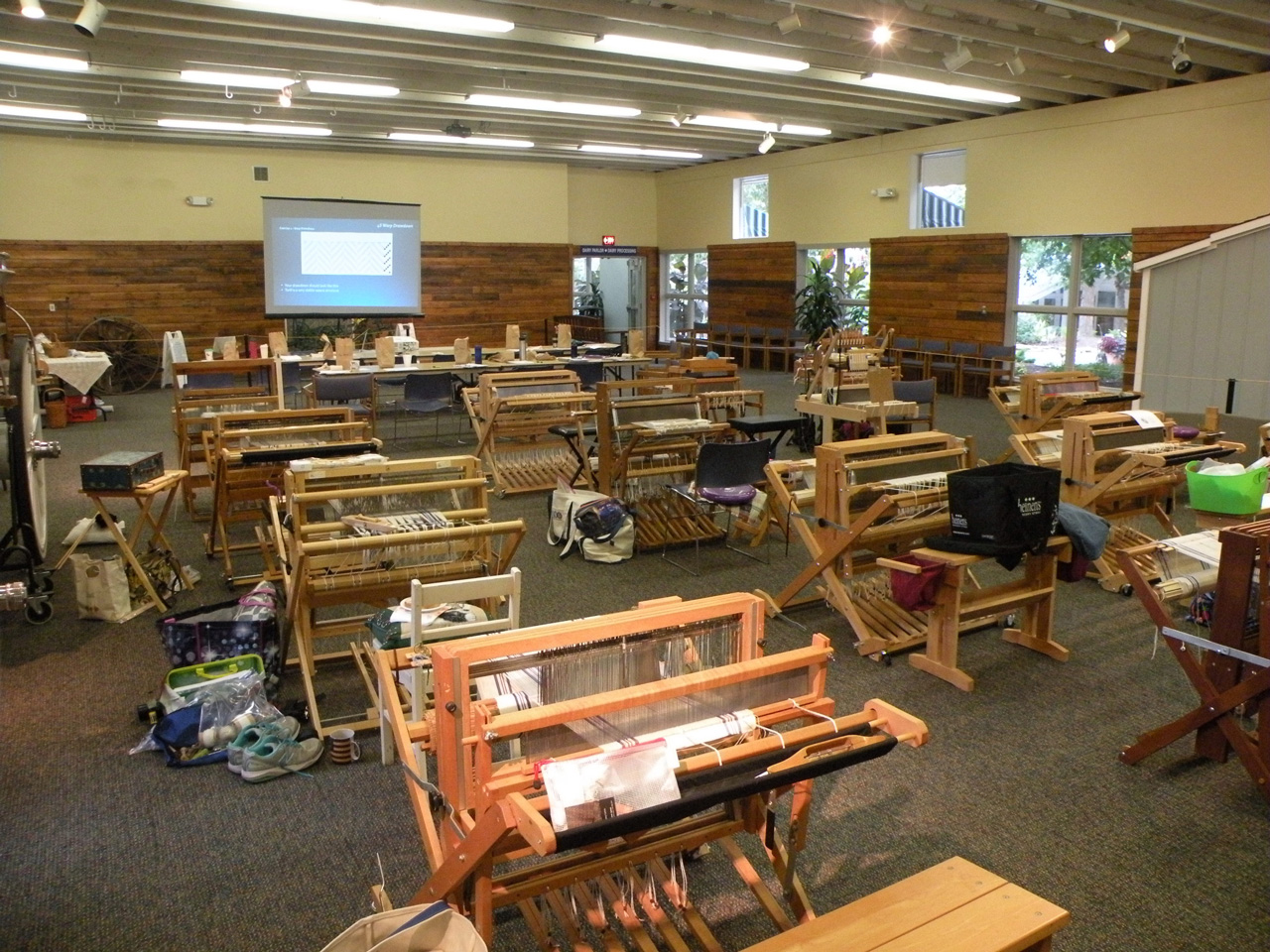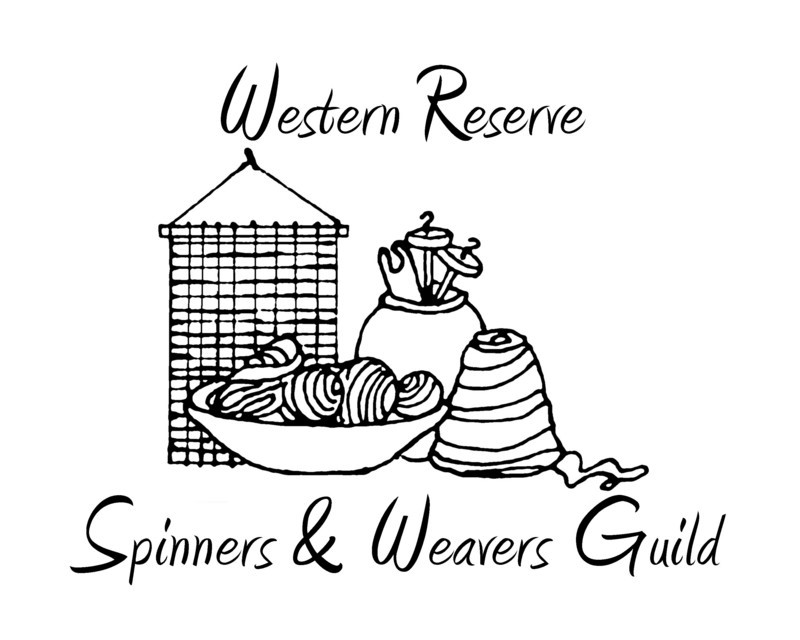From President Sally V:
Celebrating the Holiday Season during the holidays can be both enjoyable and stressful. Good to spend time with “our fiber people” but also one more deadline and spot on the calendar. In NEOhio, unless you’re a snowbird or on a cruise, there usually isn’t much to look forward to early in the year. Transitioning our 2014 Holiday Celebration to the following January was met with a favorable response from members of the Guild.
Distaff Day
| Distaff Day | |
|---|---|
| Date | 7 January |
| Next time | 7 January 2016 |
| Frequency | annual |
Distaff Day, also called Roc Day, is 7 January, the day after the feast of the Epiphany. It is also known as Saint Distaff’s Day, one of the many unofficial holidays in Catholic nations.
Many St. Distaff’s Day gatherings are held, large and small, throughout local fiber community. The distaff, or rock, used in spinning was the medieval symbol of women’s work.
In many European cultural traditions, women resumed their household work after the twelve days of Christmas. Women of all classes would spend their evenings spinning on the wheel. During the day, they would carry a drop spindle with them. Spinning was the only means of turning raw wool, cotton or flax into thread, which could then be woven into cloth.


